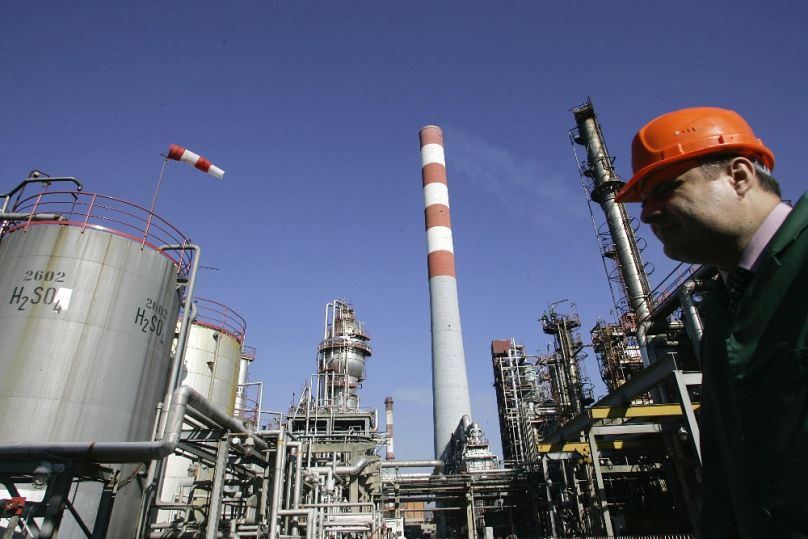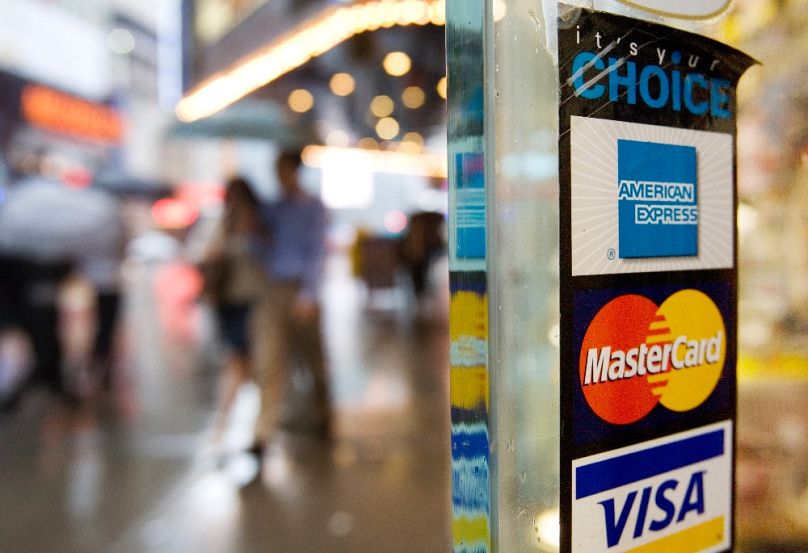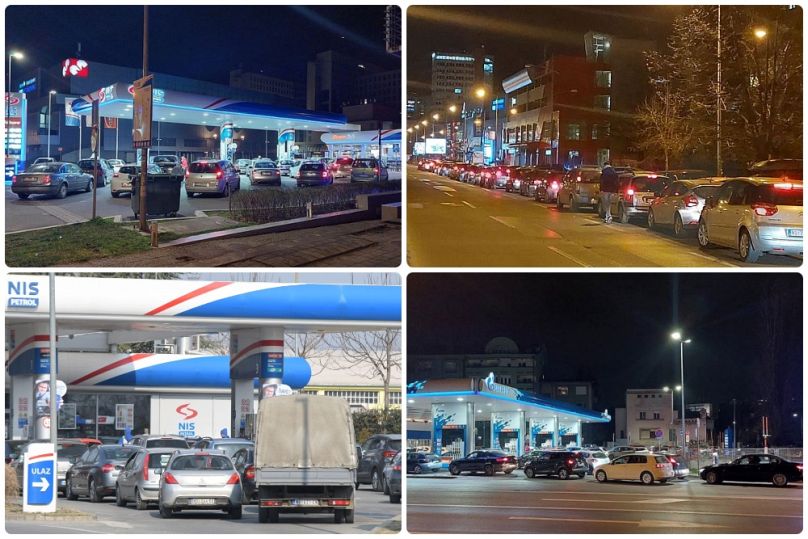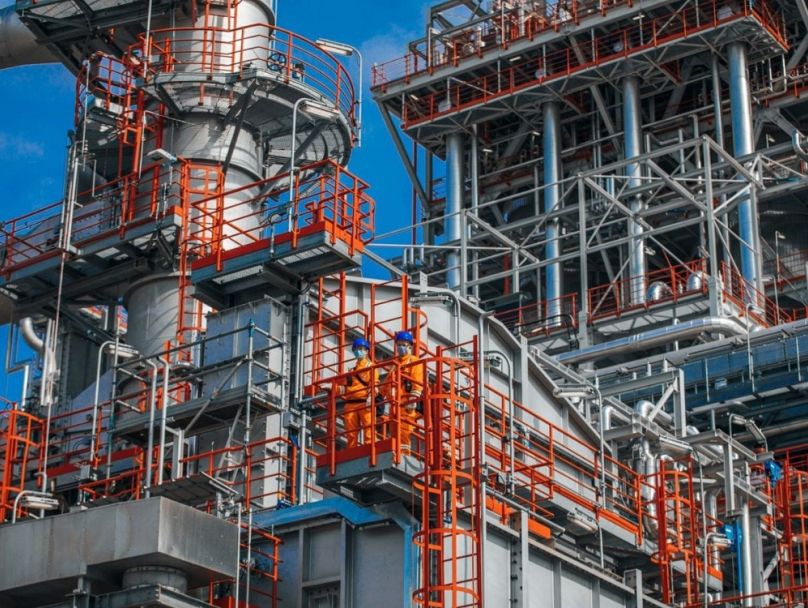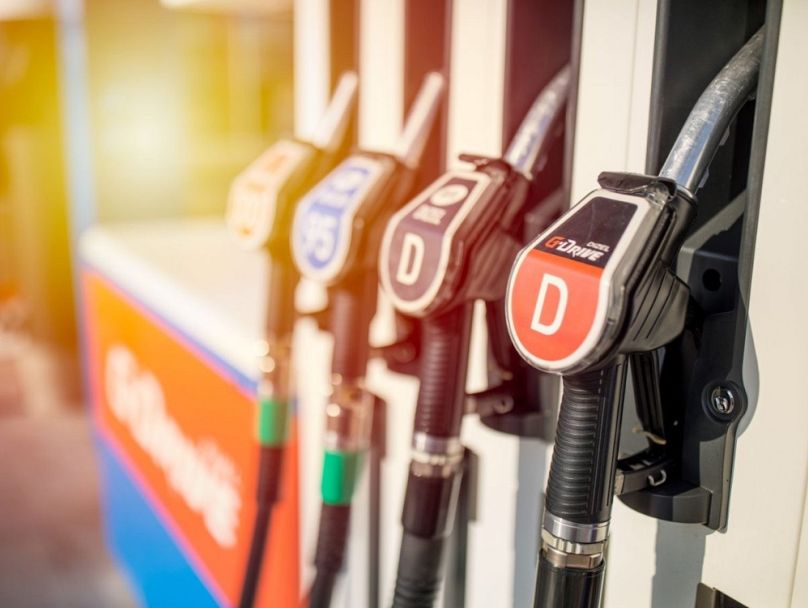Shortages and price rises: US sanctions Serbia's main oil supplier over Russian-majority control
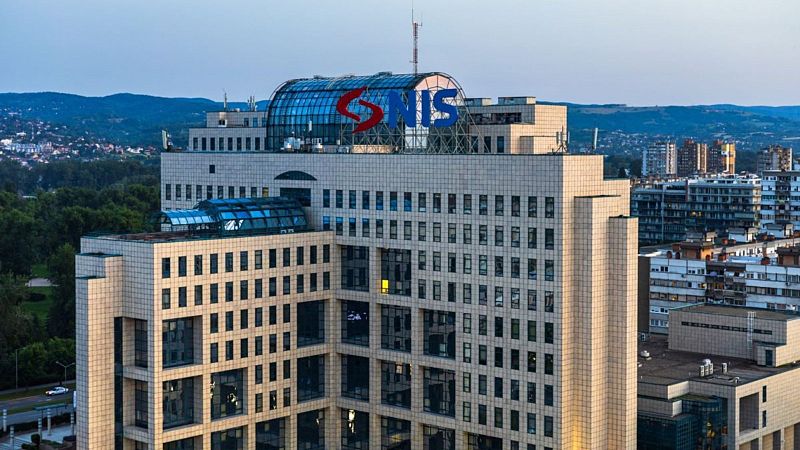
The US has sanctioned Serbia's main oil supplier, which is majority-owned by Russia, the company confirmed on Thursday.
The sanctions against the Petroleum Industry of Serbia (NIS), which employs 5,000 people, took effect at 6 am on Thursday.
American authorities sanctioned the oil giant, which operates a refinery and 330 petrol stations in Serbia, because it is controlled by Moscow.
The move comes as part of the West's crackdown on Moscow's energy sector, following its full-scale invasion of Ukraine in February 2022.
NIS' main shareholder is Russia's Gazpromneft with 45%, and after a swap deal, the Gazprom Capital-related JSC Intelligence controls around 11%. The Serbian state holds 30%, while small investors hold the remaining shares, accounting for about 13-15%.
The Russian-majority ownership can only be resolved through a buyout or nationalisation. While there is no money for the former, Serbian President Aleksandar Vučić is unwilling to take the second option.
"Nationalisation could be the only way out of the sanctions, but it is the last thing I would do," Vučić said on Thursday.
The Russian owners are not willing to withdraw from the market voluntarily, as they have "established a foothold" there, according to Vučić. They are also politically motivated to stay in a region they consider to be within their sphere of interest.
The sanctions, which were announced with a 45-day notice period, have been postponed six times at Belgrade's request, but now even the Serbian president does not hope for another reprieve from Washington.
What are the immediate consequences?
Once the sanctions are enforced, deliveries via the Croatia-owned pipeline JANAF will immediately cease by force of law. The pipeline supplies crude oil to Serbia's only refinery in Pančevo, which comes from Iraq and Gulf countries, not Russia.
JANAF was granted a delivery permit, which ended on Wednesday. It largely managed to meet Serbia's needs independently.
Between 2023 and 2024, a total of 6.2 million barrels of crude were transported from the port of Rijeka to Pančevo, near Belgrade.
Losing a client like NIS is set to create serious sanctions in Croatia, sending ripples through JANAF's largest owners including the state-owned asset management and pension fund, oil company INA, the Croatian state-owned electric utility company and the government itself, which owns 15% of its shares.
Motorists in Serbia will experience the effects of the sanctions immediately.
From 6 am on Thursday, the option to pay by card at the NIS chain of petrol stations will be discontinued. Terminals will no longer accept MasterCard or Visa cards, which operate on the US payment system.
According to forecasts, purchases at NIS filling stations will only be possible with cash.
If banks stop cooperating with NIS, it "will not affect employees' and consumers' personal accounts", said the company's CEO, Kiril Tyurgyenev.
An immediate fuel shortage is not expected. However, if reserves run out, not only will queues form at petrol stations, but fuel price hikes will be inevitable.
Is there a stockpile of petrol in the country?
Waiting in line at petrol stations in Serbia has occurred before.
In March 2022, cars lined up at stations after the Serbian government froze fuel prices, and rumours spread rapidly on social media that the quantity of fuel allowed per fill-up would be limited, a measure that had occurred several times before.
Dušan Bajatović, director of Srbijagas, reassured the public on state television that fuel stocks in Serbia are "sufficient for six to eight months" and that there is "no threat of a price shock or fuel shortage".
For a month or two, no one will feel the consequences of the sanctions, according to Bajatović in another broadcast of the same media outlet.
However, expert Miloš Zdravković claimed Serbia has "insignificant reserves" that "will not last long" after the sanctions are enforced.
He believes these reserves are "sufficient for a few months", arguing that the Serbian oil industry will shut down because "it is impossible to transport the necessary amount of crude oil by Danube barges".
"The company stores sufficient crude oil for processing, as well as enough oil derivatives to meet the current market demand," NIS stated in a press release without giving further details, adding that its filling stations "are ready to meet consumers' needs".
If the sanctions are imposed, petrol station owners will increase the supply of imported fuel "above the usual quantity", said the owner of the Knez Petrol petrol station chain, which sources half of its supplies from NIS.
"I believe there will be enough fuel until the end of the year, but afterwards, in the long run, the situation will probably be uncertain and tense," said Jelena Radun, co-owner of the Radun Avia petrol station chain. She believes the most significant problem could be the lack of storage and port capacity.
Hungarian-owned MOL, which is not affected by the sanctions, operates 65 petrol stations in Serbia. At the end of February, it announced that it is ready to take over NIS's role in the Serbian market.
Prior to the announcement, Hungarian Minister of Foreign Affairs and Trade Péter Szijjártó criticised the US sanctions, attributing them to the Biden administration's retaliatory action against the sovereign policies of Hungary and Serbia, despite the new Trump administration having imposed the punitive measures.
Will there be any layoffs?
As a result of US sanctions, it is likely that NIS will eventually be forced to let some of its workers go.
"I hope the company will not lay off a large number of employees," Vučić said.
"We will talk to the Russians because there is nothing left to discuss with the Americans," he added.
The company's accounts with foreign banks are expected to be frozen, raising questions about how, for example, employee salaries will be paid. Since the sanctions were announced, salaries have been paid a month in advance as a preemptive measure, according to sources in Gazprom.
It is unclear even to experts how the giant company will operate in the future. Banks, for example, risk their own operations if they continue to do business with NIS.
This risk extends even to the state-owned Postal Savings Bank, which could remain the oil company's only financial partner after the sanctions.
Some other companies maintained their cooperation with the Serbian oil company until this week, while others severed ties as early as January when the US first announced sanctions.
NIS a 'lifeline' to Serbia's economy
The sanctions will have severe consequences because they will practically paralyse NIS' operations, Ljubodrag Savić, a professor from the Faculty of Economics at the University of Belgrade told Euronews Serbia.
NIS contributes 11.9% to the state budget, and its production and operations account for 6.9% of GDP, said Savić, who suggested that the large company plays a "lifeline" role in the country's infrastructure.
He pointed out that NIS employs 5,000 people, whose fate affects the lives of 20,000 family members.
NIS had already been operating with weaker results in the first half of this year, with its turnover falling by more than a quarter compared to the same period in 2024.
The situation is exacerbated by the fact that banks expect NIS to repay just over half a billion euros in loans, of which €180 million is due this year.
There is always the possibility that foreign banks will attempt to collect their debts immediately, according to the former secretary general of the Association of Serbian Banks Veroljub Dugalić.
Dugalić recalled that Washington had no problem seizing or freezing Russian assets abroad in the past.
"They won't have a problem doing the same here," Dugalić said.
Sanctions are easy to impose but hard to lift, warned Professor Savić, who added that Serbia would suffer the most collateral damage in what he described as the clash between the US and Russia.
Today


